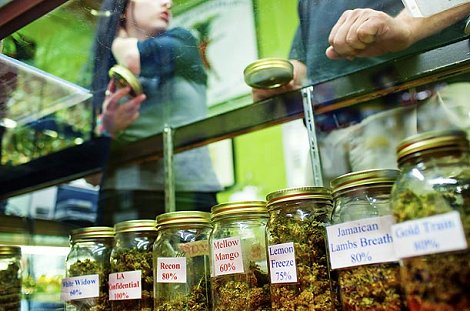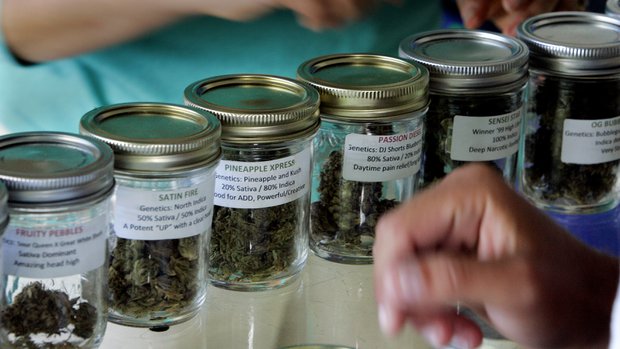San Jose officials are moving ahead with plans to crack down on medical marijuana, launching a new effort to apply tight regulations that could make it difficult, if not impossible, for dispensaries to do business in the city.
The San Jose City Council voted 7-3 June 10 to pass an ordinance that will limit MMJ shops to less than 1 percent of the city, most in industrial areas. That means almost every existing dispensary will be forced to close.
 City leaders acted after dispensary opponents complained area kids were increasingly getting their weed from some of the city’s dozens of pot shops. Some neighbors also said they worried the stores were attracting crime and suburban blight.
City leaders acted after dispensary opponents complained area kids were increasingly getting their weed from some of the city’s dozens of pot shops. Some neighbors also said they worried the stores were attracting crime and suburban blight.
“I think we came up with something that protects our residents while still providing enough space for dispensaries to operate,” said Council Member Pete Constant.
Medical Marijuana Regulations Really a Ban
But patient advocates and cannabis proponents say the ordinance isn’t regulation at all. Instead, it’s a de facto ban on all dispensaries in San Jose – something most residents have said they don’t’ want.
The city conducted a poll earlier this year that found 60 percent of residents favor regulation, but only 16 percent want to see the kind of outright dispensary ban instituted in more than 200 other California communities.
Yet that’s what they’ll get under the new ordinance, said James Anthony, an attorney who represents many of the shops. The policy will force dispensaries to grow all their weed in or adjacent to Santa Clara County, use 24-hour security, and open late and close early.
The city’s new rules impose 1,000-foot buffer zones between pot shops and schools, parks, places where children gather, and the city’s major business parks. Dispensaries must be located at least 500 feet from rehab centers and 150 feet from homes. That leaves just 600 plots of land, almost all in two small parts of the city.
In addition, minors can’t enter dispensaries or work there, stores can’t sell pot-infused candy, and customers can’t use the product inside the shops.
“Nobody can operate under those environments,” Anthony said. “It’s a de facto ban and in a kind of a sneaky way.”
Medical Pot Activists Plan to Fight Back
City council members originally considered a policy that would have forced dispensaries to grow all their pot in San Jose, a requirement so restrictive no dispensaries would likely have been able to comply. Expanding the area to Santa Clara County was a minor improvement for the marijuana industry.
There are currently about 80 unregulated dispensaries in San Jose. Weed advocates say the city collects more than $5 million in tax revenue each year from those shops, and the problems stem from a relatively small number of bad apples.
Activists say they’ve collected more than enough voter signatures to put the new ordinance on the ballot, either this year or in 2016. They will offer voters a looser set of regulations instead, Anthony said.
This is the first time since 2011 San Jose has tried to impose rules on dispensaries. That year, the city council retracted a vote to regulate the industry after weed proponents challenged it on the ballot.
This time around, the circumstances are much different, however. The California Supreme Court ruled last year that municipal governments like San Jose may ban all pot shops. Mayor Chuck Reed has promised to personally lead the fight against the ballot effort, though he will be leaving office next year.
 California Marijuana Market Breaking "Marijuana News" from CA
California Marijuana Market Breaking "Marijuana News" from CA


